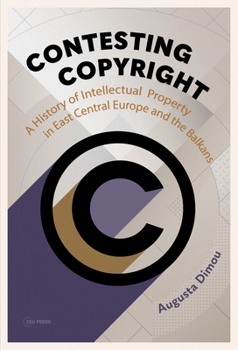Contesting Copyright: A History of Intellectual Property in East Central Europe and the Balkans
The creative sector, including the cultural industry, is key for today's economy. Copyright has the capacity to fix the roles and tasks of the actors involved and determine the direction of cash flows within this sector. The study of the evolution of copyright helps understand and adjust the regulation and commercialization of creative labor.
Augusta Dimou provides a thoroughly researched, interdisciplinary and comparative study of the historical development of copyright regimes in three countries - Czechoslovakia, Yugoslavia, and Bulgaria. She examines the function and significance of copyright in the institutionalization, development, and regulation of modern culture in East Central Europe and the Balkans during the diverse political regimes of the modern era, and at the interface between the various nationalization and globalization processes of the 20th century. The bulk of the exposition deals with the first half of the twentieth century with a final chapter providing a summary history of copyright under communism.
The author presents the development of copyright in East Central Europe in the context of the European and global history of intellectual property and the creative industries. The study considers the expansion of copyright in the multiple contexts (social, economic political, cultural, technological, ideological, legal) that sustained its rise and development.





